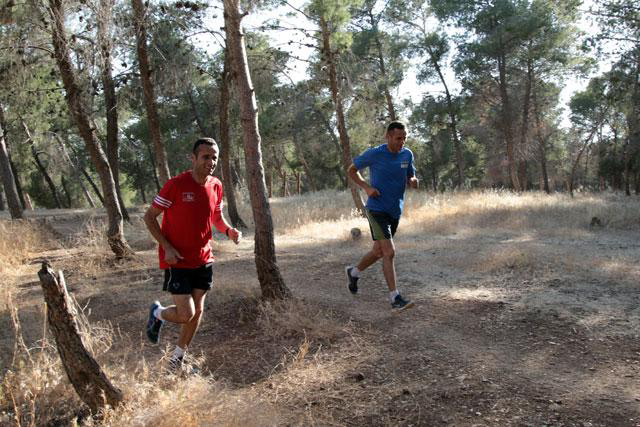AMMAN — Health and fitness experts are encouraging people to continue exercising during Ramadan and to plan their workouts according to their goals.
As Ramadan can pose a challenge to people’s daily exercise routines, given the fasting period between sunrise and sunset, it can be difficult to maintain regular activity levels.
Fitness expert, athlete and coach Marah Shaweesh told The Jordan Times that she aims to train safely and sustainably over the entire month of Ramadan, and she helps her athletes to do so as well.
“It is important not to push yourself. People should focus on maintaining their fitness through creating sustainable and safe exercise routines, while concentrating on nutrient and water-rich foods,” Shaweesh said.
She noted that there is no “best time” for exercise during Ramadan, as it differs from one person to another.
“Some people prefer to exercise before breaking their fast, while others prefer after. Timing does not matter as long as the person is moving, even if lightly, instead of abstaining from exercising,” Shaweesh explained.
Shaweesh said that many people lack knowledge of the benefits of exercising during Ramadan, such as weight loss, maintaining strength and endurance, and preventing a breakdown in muscle function as a result of extended inactivity and rest, and much more.
Morad Bater, another fitness coach, said that both his classes before and after iftar (the fast-breaking meal at sunset) have been full.
“There has been a great turnout for both classes. Men and women from different ages come to exercise for different purposes and I make sure I include everyone and help them achieve their fitness goals,” Bater told The Jordan Times on Wednesday.
Bater indicated that it is important to start off slow during the first few days of Ramadan during exercise, as the body is getting used to something new, especially if the person is exercising before iftar.
“My advice for people who work out while fasting is to stick to strength training and light cardio, and if they are not accustomed to working out, it’s better to engage in lighter physical activity, such as walking or jogging,” he added.
Bater emphasised that exercising three times a week during Ramadan is ideal. “It is important to focus on resting as well, along with staying well-hydrated and eating nutritional food. This will keep the body, mind and soul light and healthy during the holy month,” he said.
Nutritionist Shahd Yaser noted that people should exercise during Ramadan according to their goals, but she believes that the best time to exercise in Ramadan is right before sunset, as the person can push themselves a little more knowing they are breaking their fast soon.
However, if it is impossible to exercise before iftar, it is best to work out about one hour after eating. “At that point, the body would have digested some of the food and has more energy,” she said.
According to Yaser, the worst time to exercise in Ramadan is in the middle of the day, “those fasting will exhaust themselves and be unable to refuel. However, if that’s the only time they’re free, exercising for only 20 to 30 minutes, and doing low-intensity workouts are best”.
“If a person’s goal is to lose weight, it is better to work out before iftar. For maintaining weight and strength, working out after breaking the fast would be ideal,” Yaser told The Jordan Times over the phone.
“High fibre and protein rich foods are the best to break your fast, the high fibre is digested slowly and releases energy slowly, while the protein keeps you full,” she said.
Yaser said that water filled fruits, along with a protein source, are a great suhoor (pre-dawn meal) to stay energised, hydrated and not hungry during the day, noting that it is important to avoid salty foods and caffeine.
Yaser said that many women use Ramadan to build healthier habits and to get in shape.
Yara Khalayleh, a young Jordanian who is used to working out almost daily, told The Jordan Times that Ramadan helps her to focus on strengthening her weaknesses.
“My exercise routine in Ramadan is strength-based. It gives me a chance to strengthen myself and become better not only physically but even spiritually too,” Khalayleh said.
She added that exercising during Ramadan gives her “a great feeling of satisfaction”, as she works on becoming a better and healthier person, which is the purpose of the holy month.
